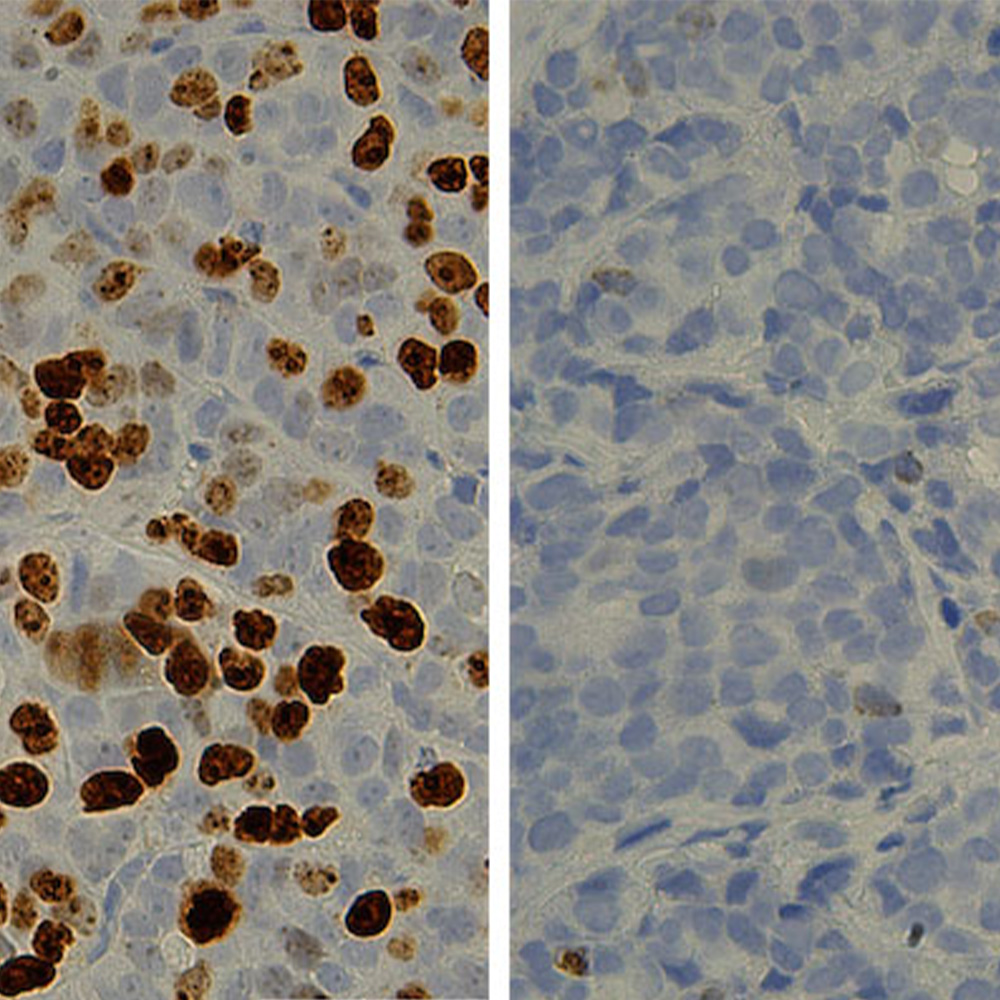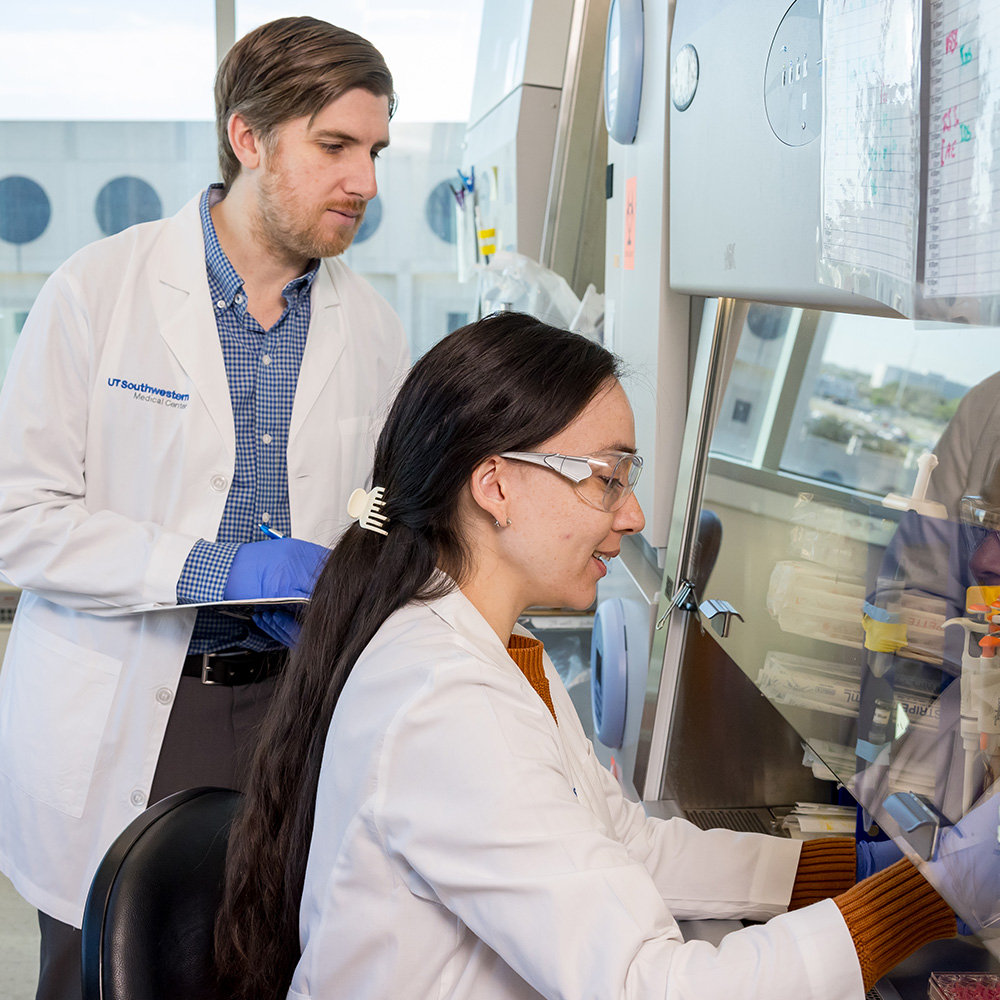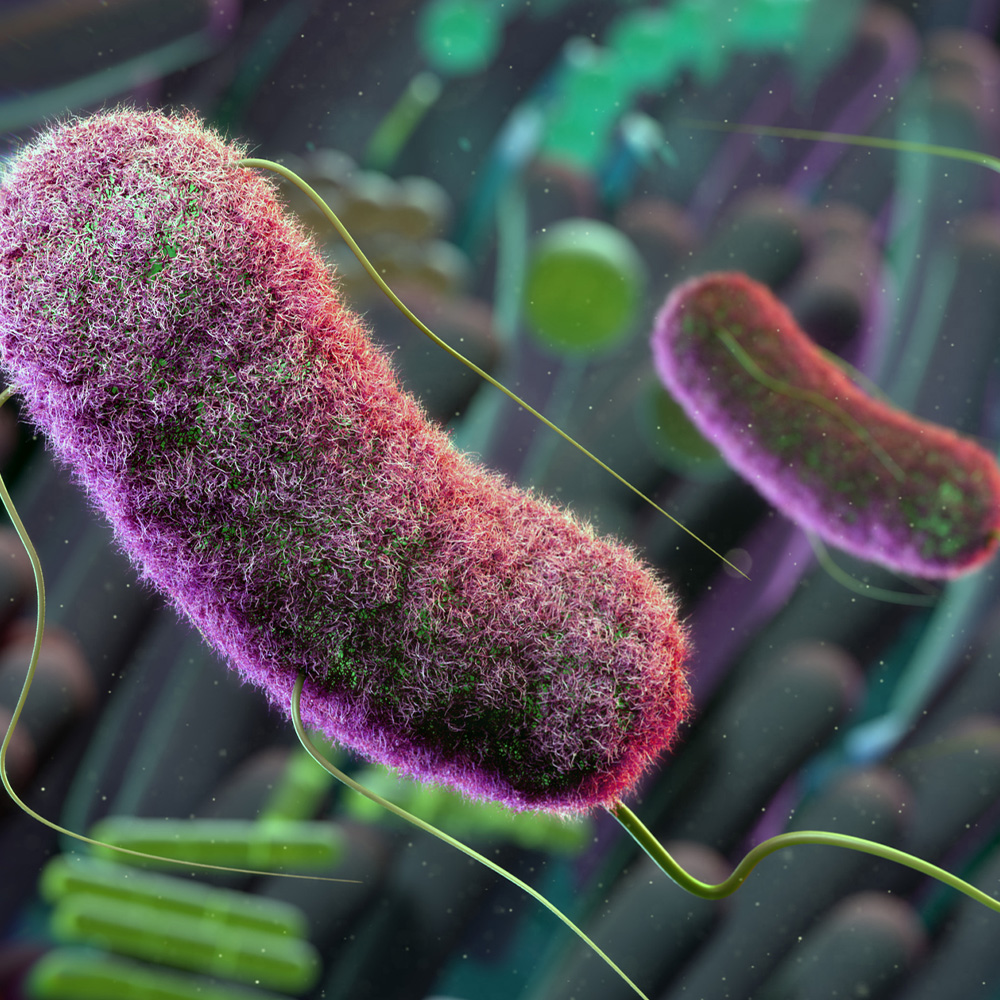Using nanoparticles to deliver tumor-suppressing therapy
UT Southwestern Medical Center chemists have successfully used synthetic nanoparticles to deliver tumor-suppressing therapies to diseased livers with cancer, an important hurdle scientists have been struggling to conquer.
Late-stage liver cancer is a major challenge for therapeutic intervention. Drugs that show promise in healthy, functioning livers can cause devastating toxicity in cirrhotic livers with cancer, the researchers explained.
UT Southwestern scientists crafted synthetic “dendrimer” nanoparticles that are able to provide the tumor-suppressing effect without further damaging the liver or neighboring tissue. The use of microscopic nanoparticles – which has surged since approval of the first nano-drug in 1995 – is an area of intense interest in drug development because of this exact ability to reduce toxic side effects of drugs.

“We have synthesized highly effective dendrimer carriers that can deliver drugs to tumor cells without adverse side effects, even when the cancerous liver is consumed by the disease,” said Dr. Daniel Siegwart, Assistant Professor of Biochemistry and with the Harold C. Simmons Comprehensive Cancer Center. “We found that efficacy required a combination of a small RNA drug that can suppress cancer growth and the nontoxic carrier, thereby solving a critical issue in treating aggressive liver cancer and providing a guide for future drug development.”
Primary liver cancer, a chronic consequence of liver disease, is a leading cause of cancer death and a major global health problem. Each year in the United States, about 20,000 men and 8,000 women get liver cancer, and the 5-year survival rate is only 17 percent, according to the Centers for Disease Control and Prevention. The percentage of Americans who get liver cancer has been rising slowly for several decades, with higher rates in Asians and in Hispanic and African-American men.
Critical to understanding this problem and developing the new therapy was a close collaboration between Dr. Siegwart and Dr. Hao Zhu, Assistant Professor at the Children’s Medical Center Research Institute at UT Southwestern and a practicing oncologist.
“Early-stage disease can be cured with surgery, but there are few options for cirrhotic patients with advanced liver cancers,” said Dr. Zhu, also Assistant Professor of Internal Medicine and Pediatrics at UT Southwestern.

The failure of five phase III human clinical trials of small-molecule drugs to treat hepatocellular carcinoma – the most common form of liver cancer – prompted the researchers to develop nontoxic carriers and explore “miRNA” therapies as a promising alternative. MicroRNAs (miRNAs) are short nucleic acids that can function as natural tumor suppressors, but they require delivery strategies to transport these large, anionic drugs into cells. Previously, no existing carrier had been able to provide effective delivery to late-stage liver cancer without amplified toxicity, which negates the desired effect.
To address this problem, UTSW scientists chemically synthesized more than 1,500 different types of nanoparticles, which allowed discovery of lead compounds that could function in the heavily compromised cancerous liver. Synthetic, man-made nanoscale compounds called dendrimers provided an opportunity to screen different combinations of chemical groups, physical properties, and molecular size, Dr. Siegwart said. This approach led to the identification of dendrimers to deliver miRNA to late-stage liver tumors with low liver toxicity.
The study, conducted in genetic mouse models with a highly aggressive form of liver cancer, demonstrated that the miRNA nanoparticles inhibited tumor growth and dramatically extended survival. The results were published in the journal Proceedings of the National Academy of Sciences.
To further this research, the Siegwart lab team is working to develop an array of siRNA-, miRNA-, mRNA-, and CRISPR-based strategies to manipulate gene expression in tumors and develop the next generation of cancer therapies. In collaboration with Dr. Zhu; Dr. Adam Yopp, Assistant Professor of Surgery; and Dr. Amit Singal, Associate Professor of Internal Medicine and Clinical Sciences and a Dedman Family Scholar in Clinical Care, the Siegwart lab is using RNA-loaded dendrimer nanoparticles to treat mice harboring human patient-derived xenograft (PDX) tumors, with the ultimate goal to provide patient-centered treatment guidance. This dendrimer technology has generated commercial interest and is currently in preclinical development for treatment of lung and liver cancer.




